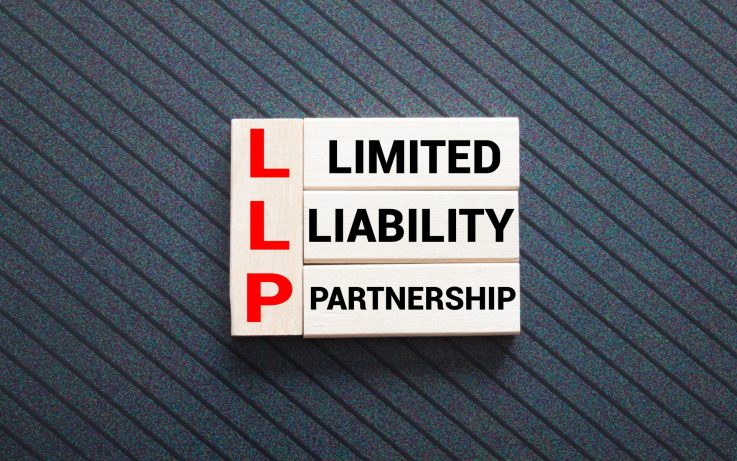Registration of UK offshore company

You may get surprised reading about a “UK offshore” because the United Kingdom is not associated with something unreliable and shady. However, if you understand the reasons why we call it this way, you will realise that there are legal ways to save on taxation of certain companies registered in Great Britain. Their business structure is transparent and within the law; it helps the company’s growth and strengthens its reputation in the business world. Let’s look at it one by one.
What lies behind “Offshore” concept?
Offshore is a territory or a whole country that offers special conditions for businesses. These can be tax reliefs, simplified or no tax reports.
The term “offshore company” appeared in the American mass media in the mid-20th century, although historically, the idea is not new. Ancient Greeks used small islands near Athens to bring goods there without taxes and duties, bypassing the capital. In the 15th century, English merchants preferred to sell wool in Flanders where taxation was much lower than in their homeland.
Why are typical offshore companies not reliable?
Running a business through a standard offshore scheme can cause problems that any entrepreneur would like to avoid.
One of them is the questionable reputation of the company which does not inspire confidence among business partners and clients. This particularly applies to the companies established in “exotic countries” with an unstable economic situation. For example, it would be difficult for a company with average business performance to ask for a deferred payment when needed. Most likely, it will be working on 100% prepayment which significantly reduces the working capital of the company.
Offshore jurisdictions allow companies to use simplified or minimised taxation. Registered businesses bring income to the jurisdiction where they operate: incorporation fees, running costs, etc. If an offshore company operates in other countries, they, in turn, may treat it differently. For example, doubts may arise about the financial transparency of such a company, which also causes tax consequences.
Why can’t England be called offshore?
The UK economy has always been strong and stable, combined with a high international business rating. This alone cannot let us call Great Britain an offshore. The British government values the country’s well-earned impeccable reputation and carefully enforces the laws that support its high status.
At the same time, the United Kingdom is actively developing and adjusting to a modern pace of life. It provides foreign entrepreneurs with favourable conditions to set up companies. Besides, businessmen are particularly attracted by potentially zero taxation of companies within the legal framework. This is not the only advantage that will be available if you properly structure your business in England. Professional advice will help you avoid mistakes and pitfalls and effectively launch your business. Therefore, it is recommended to choose simple and legal ways of doing business in England and not to waste time and effort on shady and troublesome offshores.
How can foreign entrepreneurs optimise their business in England?
Current UK legislation offers a special form of legal incorporation; it allows foreign businessmen to register a company which in some aspects may resemble an offshore company but will be registered and operating 100% legally. To reduce the tax burden and simplify accounts of a company doing business outside the United Kingdom, experienced advisors recommend registering a company as a Limited Partnership (LP) or as a Limited Liability Partnership (LLP).
How does limited partnership work in England?
An LP must be registered, like most UK entities, with Companies House and the HMRC, and it will be officially recognised as a legal entity. Generally, LP business is focused on the domestic market and current English law follows a long tradition of not passing on information about LP beneficiaries to Companies House.
There is also no need to publish a partnership agreement or any other additional information which remains confidential. That is why an LP is sometimes confused with an offshore entity.
To establish a British LP, you will need at least one general (liable) partner and at least one limited partner. They can be individuals of any nationality or country of residence or legal entities. A general partner has the right to make managerial decisions in the partnership and is liable for the company’s activities with all their assets, which is a huge drawback of an LP. A limited partner is responsible for the operation of the partnership to the extent of their contribution to the partnership, but they cannot run the company. The partnership does not pay any income or corporation taxes; all profits from its operations belong to the partners in accordance with the partnership agreement. Partners, in their turn, report their income in the country of their tax residency. Therefore, when the partners are not tax residents in the UK they have no tax liability here but they must pay taxes in their country of tax residency. Because of this, LP should never be confused with an offshore company.
There is also a subtype of a limited partnership – an SLP (Scottish Limited Partnership) which is governed by Scottish law. Information about an SLP and its beneficiaries must be filed with the Companies House’s office in Edinburgh. An SLP does not pay corporation tax and its profit belongs to the partners. Accordingly, if the partnership does not operate in the UK and the partners are non-UK tax residents, they have no tax liabilities here.
At the moment LPs and SLPs must file annual accounts with Companies House only if the company is trading in the UK or one of the partners is resident here. Otherwise, reporting is voluntary; however, the partnership must submit annual tax returns to the HMRC. If there are no taxes to pay in the UK, it will be a nil return.
What is limited lability partnership in England?
An LLP differs from an LP in its structure: its members are given equal management powers, while their liability is limited to the amount they have invested in the partnership. Being a legal entity, an LLP submits information to Companies House. Annual accounts and tax returns are mandatory, even if the business was done outside the United Kingdom. At least two partners must be designated and liable for filing the company’s accounts. They must make sure that the accounts are filed on time and all the information provided is accurate. They can have any nationality and residence. Companies can also act as designated partners.
Benefits of British LLP for entrepreneurs
- If partners are not residents in the United Kingdom and the company generates profit outside the UK, this income is non-taxable;
- An LLP is an independent legal body which for most purposes can conduct an independent business for the benefit of its partners;
- In some cases, in real estate transactions, the partnership is exempt from the mandatory stamp duty.
LLPs and LPs have no authorised capital, but there are contributions paid by the partners. The law allows for remote participation in the incorporation and subsequent management of the partnership.
These types of partnerships are designed primarily to operate in the domestic market, so special conditions apply to their activities. Due to the current English legislation, if the partners are not UK residents, they must report their income received from the partnership’s activities in the country of their tax residency. Therefore, there are no tax liabilities for such partners in the UK. When, however, the partners are British residents, they must pay taxes to the UK treasury.
UK partnerships are renowned worldwide attracting customers and expanding the company’s activities.
This basic overview explains the difference between some types of UK partnerships and typical offshore companies. Experienced specialists would always be able to give you more detailed information. Qualified advisors provide support at all stages of incorporation, registration, or purchase of existing companies. Furthermore, they can assist with opening a business account in a British bank, submitting necessary reports on the operations of a company or a partner, and collecting and submitting documents for obtaining a UK business visa. You can also get professional advice on accounting, taxation and VAT registration. Professional support will save you time and money.
FAQ about UK offshore
What does the term tax haven mean?
The expression “tax haven” applies to countries where foreign companies doing business abroad are allowed to pay taxes under a simplified scheme. Such an offshore territory is often used by companies looking to avoid high corporate taxation from doing business in their own country.
Is the UK an offshore jurisdiction?
No, the UK cannot be called an offshore, although various countries include some territories of the Commonwealth in the list of such jurisdictions (Cayman Islands, British Virgin Islands, Bermuda, Gibraltar, and others).
Great Britain is justly proud of its impeccable reputation in the world, so it is impossible to open a typical offshore company here. However, the legislation of the country enables foreign businessmen, subject to certain conditions, to establish a UK company which may look offshore but is not. It can be registered as a limited liability partnership (LLP) or as a limited partnership (LP), with an SLP being a subtype for Scotland. They operate based on these main rules:
- Business owners are non-UK tax residents;
- A company trades outside the United Kingdom.
If the partners are not tax residents in the UK they have no tax liabilities here, but they must pay taxes in the country of their tax residency. This is why English partnerships are sometimes confused with offshore companies.
It is possible to quickly establish a partnership in the UK, legally file simplified accounts and successfully develop the business while enjoying a high international status.
Is it more profitable to open a new company or buy an existing business in England?
Buying an existing company will definitely save you time and effort. Registering a new company is more labour-intensive and time-consuming, but in return, a company has its own history and builds its reputation in the market from scratch. Therefore, the choice will depend on the needs of a businessman, the scope of activities and the goals. Professional consultants will help you quickly and efficiently resolve issues specific to your situation.







